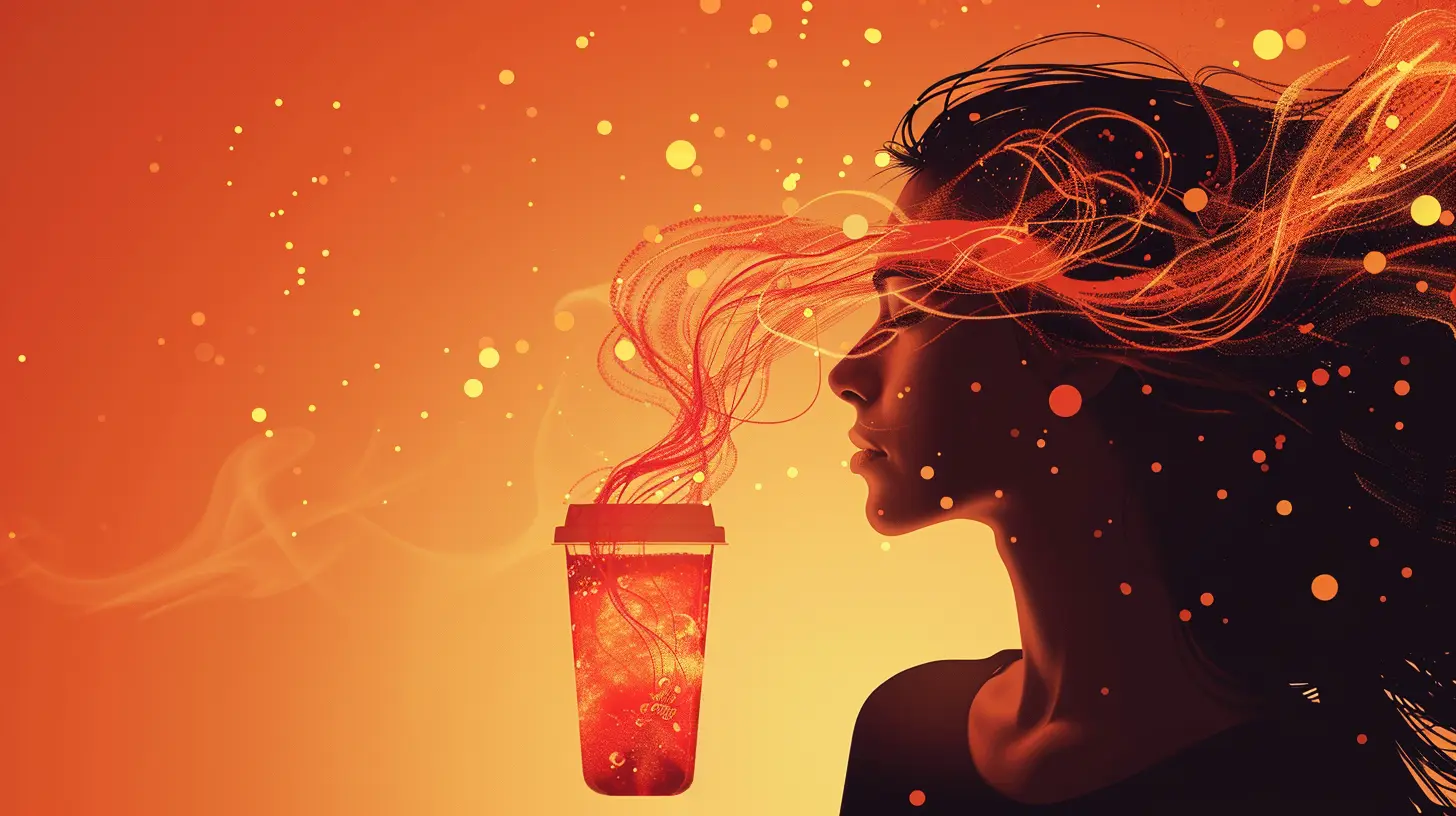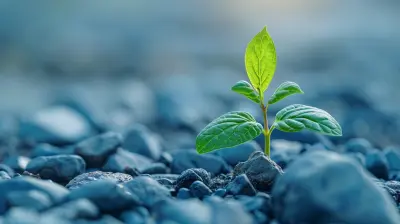The Psychology of Instant Gratification and Its Role in Addiction
22 February 2025
In today's fast-paced world, we're constantly searching for quick fixes, immediate solutions, and instant rewards. We get frustrated when a website takes more than a few seconds to load, and we’re probably guilty of abandoning a video if it doesn’t grab our attention within the first few moments. We’ve become accustomed to getting what we want, when we want it, with minimal effort. This is the essence of instant gratification.
But what exactly is instant gratification? Why is it so appealing to our brains, and how does it contribute to the dangerous cycles of addiction? To answer these questions, we need to dive into the psychology behind instant gratification and explore its profound impact on human behavior.

What is Instant Gratification?
At its core, instant gratification refers to the desire to experience pleasure or fulfillment without delay. It’s the need to have your wants met immediately. Whether it’s the urge to eat a piece of chocolate, check a notification on your phone, or binge-watch an entire season of a TV show in one evening, instant gratification is about satisfying a craving now rather than later.It’s not just about physical pleasures either. Instant gratification can also stem from emotional or psychological rewards, like getting praise or validation through social media likes or comments. In short, it’s all about bypassing patience in favor of immediate satisfaction.
The Brain's Role in Instant Gratification
Your brain is wired in a way that makes instant gratification extremely appealing. It all comes down to two key areas of the brain: the prefrontal cortex and the limbic system.- The Limbic System: This is the ancient part of your brain responsible for emotions and survival instincts. It’s where your desires for food, pleasure, and other basic needs live. When you get a reward—like a tasty treat or positive feedback—your limbic system floods your brain with dopamine, the "feel-good" chemical. This creates a sense of pleasure and reinforces the behavior, encouraging you to seek out more of it.
- The Prefrontal Cortex: On the flip side, the prefrontal cortex is the more rational, forward-thinking part of your brain. It’s responsible for things like decision-making, impulse control, and planning for the future. Ideally, this part of your brain helps you weigh the long-term consequences of your actions and delay gratification when necessary.
However, the prefrontal cortex and the limbic system don’t always work in harmony. When your limbic system’s craving for instant rewards becomes too strong, it can overpower your prefrontal cortex, leading you to make impulsive decisions that prioritize short-term pleasure over long-term goals.
The Marshmallow Experiment
A famous psychological study that highlights the concept of instant gratification is the Stanford Marshmallow Experiment, conducted in the 1960s. In this study, children were given a marshmallow and told they could either eat it right away or wait 15 minutes and get a second one. The researchers found that the children who were able to delay gratification and wait for the second marshmallow tended to have better life outcomes in terms of academic success, health, and overall well-being.This study isn’t just about marshmallows—it’s about the ability to resist short-term temptations for long-term gains. But in today’s society, resisting those temptations is harder than ever. Why wait for a second marshmallow when you can have a whole bag delivered to your door in less than an hour?

The Link Between Instant Gratification and Addiction
Instant gratification is a double-edged sword. While it feels great in the moment, it can also pave the way for unhealthy habits and, ultimately, addiction. But how does this happen?Dopamine and the Reward System
At the heart of both instant gratification and addiction is dopamine—the neurotransmitter responsible for pleasure and reward. Whenever you experience something enjoyable, like eating a delicious meal or receiving a compliment, your brain releases dopamine, reinforcing the behavior and making you want to repeat it.This reward system is vital for survival. It motivates us to seek out food, social connections, and other activities that keep us alive and thriving. However, it can also be hijacked by activities that offer unnatural levels of reward, such as drug use, gambling, or even excessive social media scrolling.
Addictive substances and behaviors flood the brain with an overload of dopamine, far more than what we’d get from natural rewards. Over time, the brain becomes desensitized to normal levels of dopamine, making it harder to feel pleasure from everyday activities. This leads to a vicious cycle where the individual needs more of the addictive substance or activity to achieve the same level of pleasure, reinforcing the behavior and making it increasingly difficult to stop.
Instant Gratification in Modern Society
In today’s world, we’re surrounded by opportunities for instant gratification. From the notifications on our smartphones to the convenience of online shopping, everything is designed to give us what we want right away. While this can be convenient, it also makes it easier than ever to fall into addictive patterns of behavior.Think about social media, for example. Platforms like Instagram, TikTok, and Facebook are built on the promise of instant gratification. Every time you post a photo or share an update, you’re hoping for likes, comments, and shares. When you get those notifications, your brain gets a hit of dopamine, making you want to come back for more. Soon, you find yourself mindlessly scrolling, refreshing, and seeking validation, even when it’s no longer enjoyable.
This same principle applies to other forms of addiction, such as gambling, video games, or substance abuse. In each case, the individual is seeking out instant rewards, but the long-term consequences can be devastating.
The Impact of Instant Gratification on Self-Control
One of the major dangers of instant gratification is that it weakens your ability to practice self-control. The more you give in to the desire for immediate rewards, the harder it becomes to resist temptations in the future. This is because the brain gets used to the quick dopamine hits and starts to expect them.Over time, this can lead to a decrease in willpower and an increase in impulsivity, making it harder to make decisions that align with your long-term goals. For example, if you constantly give in to the temptation to check your phone during work, it becomes harder to focus on tasks that require sustained attention. Similarly, if you frequently indulge in unhealthy snacks, it becomes harder to stick to a balanced diet.
In the context of addiction, this lack of self-control can make it incredibly difficult to break free from the cycle of compulsive behavior. Even if the individual recognizes that their addiction is harmful, the brain’s craving for instant gratification can make it feel impossible to stop.

Strategies to Overcome Instant Gratification
While instant gratification is a natural part of human psychology, it doesn’t have to control your life. There are several strategies you can use to build your ability to delay gratification and make healthier choices.1. Practice Mindfulness
Mindfulness is the practice of being fully present in the moment and aware of your thoughts and feelings without judgment. By practicing mindfulness, you can become more aware of your impulses and create a space between your desires and your actions. This can help you resist the urge to seek instant gratification and make more intentional choices.2. Set Clear Goals
Having well-defined, long-term goals can make it easier to resist short-term temptations. When you have a clear vision of what you want to achieve, you’re more likely to stay focused on the bigger picture and delay gratification in favor of long-term rewards.3. Break Tasks into Smaller Steps
One reason people give in to instant gratification is that long-term goals can feel overwhelming. By breaking your goals down into smaller, manageable steps, you can create a sense of progress and achievement along the way. This can help satisfy your brain’s craving for rewards without derailing your long-term plans.4. Create a Reward System
If you struggle with delaying gratification, try creating a system where you reward yourself for making progress toward your goals. For example, if you’re trying to study for an exam, you could reward yourself with a short break after completing a certain number of pages. This helps balance the need for instant gratification with the pursuit of long-term success.5. Limit Exposure to Temptations
Finally, one of the most effective ways to overcome instant gratification is to limit your exposure to tempting situations. If you know that certain environments or activities trigger impulsive behavior, try to avoid them as much as possible. For example, if you find it hard to resist checking social media, consider turning off notifications or setting specific times for when you can use your phone.
Conclusion: Balance is Key
Instant gratification isn’t inherently bad. In fact, it’s a natural part of how our brains function. The key is finding a balance between enjoying life’s immediate pleasures and maintaining the self-control necessary to achieve your long-term goals. By understanding the psychology behind instant gratification and its role in addiction, you can start taking steps to break free from unhealthy patterns and create a more fulfilling, balanced life.all images in this post were generated using AI tools
Category:
AddictionAuthor:

Gloria McVicar
Discussion
rate this article
8 comments
Lena Harris
Instant gratification is like a catnip for the human brain—delightfully distracting yet potentially addictive! We’re all just hamsters on a wheel, chasing shiny treats. Let’s ponder if our brains are wired for joy or just a high-speed race to the next fix!
April 5, 2025 at 3:53 AM

Gloria McVicar
Absolutely! Instant gratification can be both enticing and detrimental, driving us to seek quick rewards while risking deeper fulfillment. It's crucial to understand this balance in our pursuit of happiness.
Regina McGivern
Desire eclipses future fulfillment.
March 27, 2025 at 4:38 PM

Gloria McVicar
Thank you for your insightful comment! Indeed, unfulfilled desire can overshadow the potential for future satisfaction, highlighting the psychological challenges associated with instant gratification and addiction.
Harper Weber
Embrace patience for lasting fulfillment!
March 16, 2025 at 4:09 PM

Gloria McVicar
Absolutely! Patience fosters deeper satisfaction and helps combat the urge for instant gratification, leading to healthier habits and lasting fulfillment.
Vanta McCarron
Instant pleasure, lasting pain: a vicious cycle.
March 8, 2025 at 5:14 PM

Gloria McVicar
Thank you for your insightful comment! It beautifully encapsulates the core struggle between immediate rewards and the long-term consequences often seen in addiction.
Ruby Wood
Instant gratification: the delightful rabbit hole we all tumble down! 🐇✨ It's like ordering dessert before dinner—tempting and fun, but sometimes, the best flavors come with a little wait. Let’s find a balance between sweet treats and patience!
March 8, 2025 at 5:20 AM

Gloria McVicar
Absolutely! Balancing instant gratification with patience can enhance our experiences and well-being, especially in understanding its impact on addiction. Thanks for sharing this insightful analogy!
Rowan Cannon
Instant gratification may seem enticing, but understanding its psychological roots is crucial for breaking free from addictive patterns. Embrace patience and cultivate resilience—transforming your cravings into meaningful growth. Empower yourself to choose long-term fulfillment over fleeting pleasures. The journey starts now!
March 4, 2025 at 4:43 PM

Gloria McVicar
Thank you for your insightful comment! Emphasizing patience and resilience is key in overcoming instant gratification and fostering long-term fulfillment. Your perspective truly enriches the conversation on this important topic.
Evelyn Stevens
Instant gratification often fuels addiction by reinforcing harmful behaviors.
March 2, 2025 at 5:33 AM

Gloria McVicar
Thank you for your insightful comment! You're absolutely right—instant gratification can create a cycle that reinforces addictive behaviors, making it crucial to understand its psychological impact.
Zevros Malone
This article effectively highlights the interplay between instant gratification and addiction, illustrating how immediate rewards override long-term consequences in decision-making. It underscores the importance of understanding this psychological mechanism to develop effective interventions for addictive behaviors, promoting healthier coping strategies in a gratification-driven society.
February 23, 2025 at 6:02 PM

Gloria McVicar
Thank you for your insightful comment! I'm glad the article resonated with you and emphasized the crucial link between instant gratification and addiction. Understanding these dynamics is essential for fostering healthier behaviors in our society.
MORE POSTS

Emotional Growth for Empaths: How to Protect Your Energy

Cultivating Emotional Growth Through Meditation

Emotional Dependency and the Fear of Being Alone

How to Recognize Burnout Before It Takes Over

Mental Health Advocacy: Small Steps That Make a Big Impact

The Impact of Environment on Your Motivation Levels